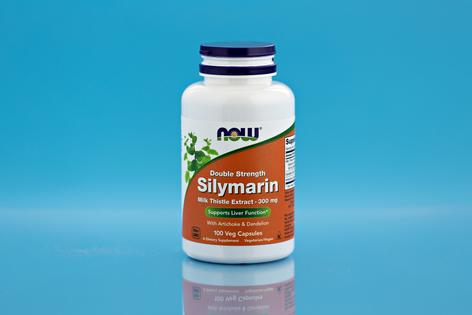Environmental Nutrition: Spotlight on supplements: Milk thistle
Published in Health & Fitness
Milk thistle (Silybum marianum) is a flowering herb native to Mediterranean regions and has been used for centuries in traditional medicine. Its active ingredient, silymarin, is a group of flavonoids known for their antioxidant and anti-inflammatory properties. Today, milk thistle supplements are popular for supporting liver health, among other potential benefits.
Benefits
Milk thistle is best known for its potential to support liver function. Studies suggest it may help protect liver cells from toxins and oxidative stress, making it useful for individuals with liver diseases such as non-alcoholic fatty liver disease (NAFLD) and hepatitis C. However, clinical evidence remains inconclusive, with mixed results in larger trials.
Silymarin acts as a potent antioxidant, helping to reduce oxidative stress in cells. This may have implications for reducing inflammation and improving overall cellular health.
Some research suggests milk thistle may improve insulin sensitivity and lower blood sugar levels in people with Type 2 diabetes, although more studies are needed to confirm these effects.
Potential risks
Milk thistle is generally considered safe for most people when taken in recommended doses. However, side effects may include gastrointestinal discomfort, nausea, or mild allergic reactions. Rarely, severe allergic reactions to milk thistle have been reported in individuals sensitive to plants in the Asteraceae family, such as ragweed or daisies.
Dosages and potential interactions
Most supplements contain 70% to 80% silymarin, and typical dosages range from 200 to 400 milligrams (mg) per day, divided into two or three doses. For therapeutic use, dosages up to 600 mg daily may be used under medical supervision. Milk thistle may interact with certain medications, including blood thinners, statins, and diabetes medications, potentially altering their effects. It can also affect enzymes in the liver that metabolize drugs, potentially increasing or decreasing their efficacy. Consulting with a healthcare provider before using milk thistle is crucial, especially for individuals on prescription medications.
Bottom line
Milk thistle dietary supplements may offer health benefits, particularly for liver support, but more rigorous studies are needed to validate their efficacy. Proper use and medical guidance can help maximize benefits while minimizing risks.
(Reprinted with permission from Environmental Nutrition, a monthly publication of Belvoir Media Group, LLC. 800-829-5384. www.EnvironmentalNutrition.com.)
©2025 Belvoir Media Group. Distributed by Tribune Content Agency, LLC.










Comments